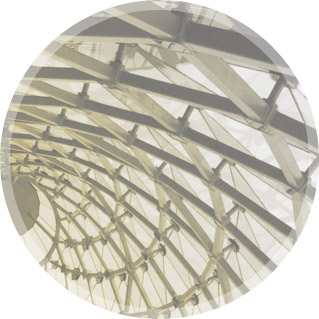Massachusetts College of Art and Design
Department of Architecture
Teaching through making is the core philosophy and strength of MassArt consistent with its unique context in a public, urban art institution. Studio work is an experiment in design inquiry at times requiring full-scaled mock-ups; learning through constant analysis and exploration of material consequences. Students and faculty work together to understand and advance individual interests, while the pedagogy encourages students to take risks developing ideas across disciplines. Making pervades many program contexts—pairing community engagement with leadership; linking design studios to structural/environmental building systems; and employing place-specific design research toward understanding the social responsibilities architects and planners share.
http://www.massart.edu/admissions/graduate_programs/master_of_architecture.html
Setting
Massachusetts College of Art and Design is centered in the city of Boston, an urban environment with a diverse urban population rich in historic traditions. The school is within walking distance of many cultural institutions, museums and historic neighborhoods. Boston is a unique city with an active harbor and waterfront, thriving business centers, close-knit diverse communities and neighborhoods, as well as a wide range of schools and universities offering a unique setting for the college student. The greater Boston area is surrounded by small urban centers - industrial communities with histories of fabrication, fishing villages and harbors with active fleets, and small New England towns with a public square defining the town center. Many studios and design-build projects are typically situated in one of these neighborhoods. Studios both within and outside of the program also offer travel outside of New England and abroad, supported by faculty from MassArt and across a network of local campuses. Each encourages students to experience Boston or other places and its people through investigation-based studio art and design projects while learning how to understand the design and planning considerations relevant to diverse cultural, social, environmental, and political settings.
School Philosophy
The Architecture program at MassArt is designed to provide a rigorous, accessible and affordable professional preparation for a variety of architecture careers in a world facing serious global challenges. Grounded in energy-conscious building and site design, studio coursework promotes the practical application of learned theory in building systems, construction technology, ethical practice and cultural traditions in architecture. The curriculum combines professional requirements with hands-on design-build experience focused on community living and working spaces, so that students develop as socially aware artisan-architects who are versatile problem solvers and skilled collaborators, dedicated to sustainable improvement of the built environment. Recognizing that understanding of a multicultural world essential for every citizen in the 21st century, the program provides an interactive learning environment where diverse opinions, approaches and passionate debate are encouraged. Students and faculty treat one another with respect and mutual goodwill and resolve differences in an equitable, respectful manner. Vertically integrated coursework affords graduate and undergraduate populations the chance to work together and collaboratively. At the end of each program students explore their passions through engagement with investigative and research questions and project design goals highlighted in the undergraduate Degree Project and Master of Architecture Thesis I and II studios.

Programs
Massachusetts College of Art and Design offers a 120 credit pre-professional Bachelor of Arts degree with a major in Architecture and two tracks at the graduate level leading to the Master of Architecture Degree. Track I is 102 credits for students who enter with little architectural preparation. This includes the non-pre-professional degree, 42 pre-professional credits + 60 graduate credits. Track II is 60 credits and includes the pre-professional degree and 60 graduate credits. The program is designed to produce architects and designers skilled in the technical and formal aspects of building, who are realistically prepared to be skilled collaborators in a collective environment of students, educators and professionals in architecture, engineering and construction. Studio courses in housing, urban design and community projects ranging in scale from details in materials to civic structures, housing and urban site planning are integrated with instruction in structural design, sustainable construction materials, building methods and service systems, so that learned theory is put directly into practice. Scale models and full-scale mockups are used not merely as overall massing studies, but also as analogs for the building process so that model-building represents structural systems and connections with various infill systems, giving tactile three-dimensional understanding of two-dimensional representations. State-of-the-art and traditional technologies are combined for 2D and 3D presentations. Students may make sophisticated computer representations of details or connections that they originally sketched by hand, then hand fabricated in our wood, metal or glass shops. Frequent constructive critiques by faculty and guest design and construction professionals assist students in refining designs: these discussions typically cover concept development and how it is linked to programming, materials and structural decisions, safety, accessibility and codes, legal and economic issues, responses to context and users, energy conservation and overall presentation strategies. Seminars in architectural history and the building traditions of different cultures widen the students' frame of reference, and introduce techniques that involve restoration and adaptive re-use of historical buildings or cultural districts. The graduate program Track II curriculum is offered in five intensive continuous semesters, starting in a summer semester. The final two semesters are devoted to the student's thesis—a design project founded in research and relevant to the students' experience, vision and practice of architecture. Use of summer semesters permits shop and construction experience in prime building season, so that all students develop practical contact with, and observation of designing and crafting details and assembling materials. All studios in the UG and Track I pre-professional curriculum creatively engage students in questions of practice and in studio projects that incorporate discussions with visiting architects and engineers in design reviews. In our Community Build Studio, a construction project with a public or non-profit entity, entering Track II students are exposed to working with a client directly. MassArt guides students to enter the profession as innovative architects. However, professional opportunity is expanded through students' understanding of project management and the design-build process. We have several graduates who have leveraged this ability to gain entry positions in design-build firms. To date, approximately 90% of our M.Arch. graduates are practicing in traditional architectural firms or related industries.

of Focus
1. Building Technologies
2. Community Design
3. Design/Build
4. Digital Design & Visualization
5. History | Theory | Criticism
6. Materials and Construction
7. Resilience

Opportunities

Facilities

Policies
Transfer Policies
Approximately one-third to one-half of all new students enter MassArt as transfers. A transfer student is anyone who has earned college credit after receiving a high school diploma or equivalent. Typically, these students have either acquired or were pursuing degrees from accredited four-year liberal arts colleges, universities, two-year community colleges, or other colleges of art or design. View MassArt’s transfer credit guidelines: (https://massart.edu/node/2331)
To learn about how to apply, click here: (https://massart.edu/transfer-students)



